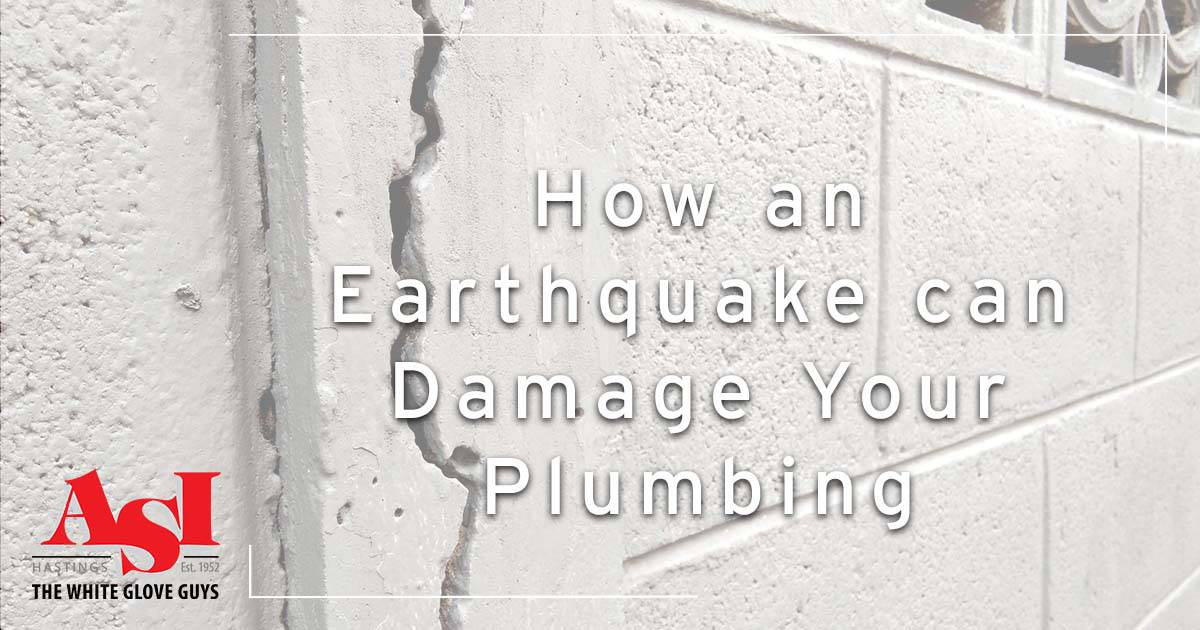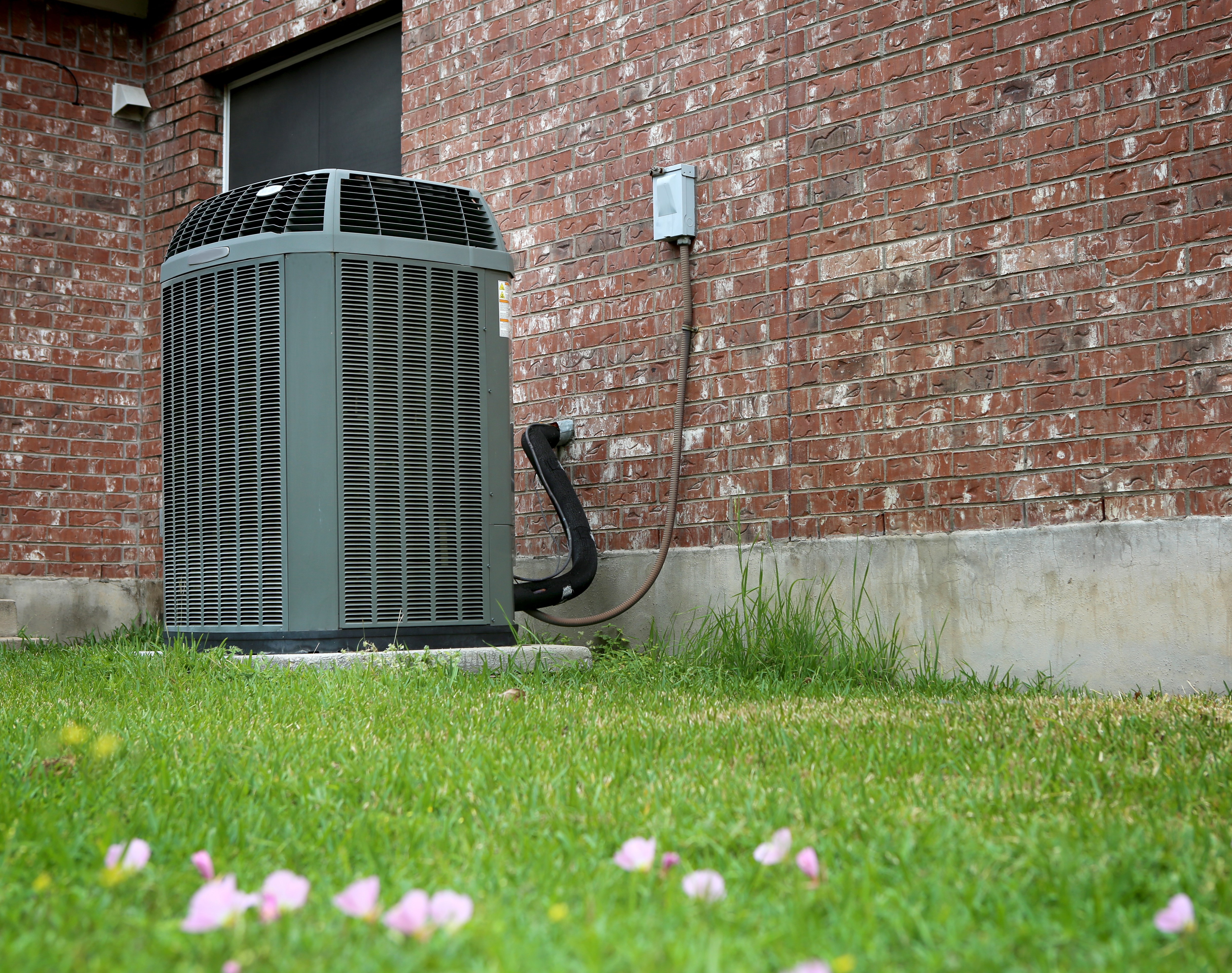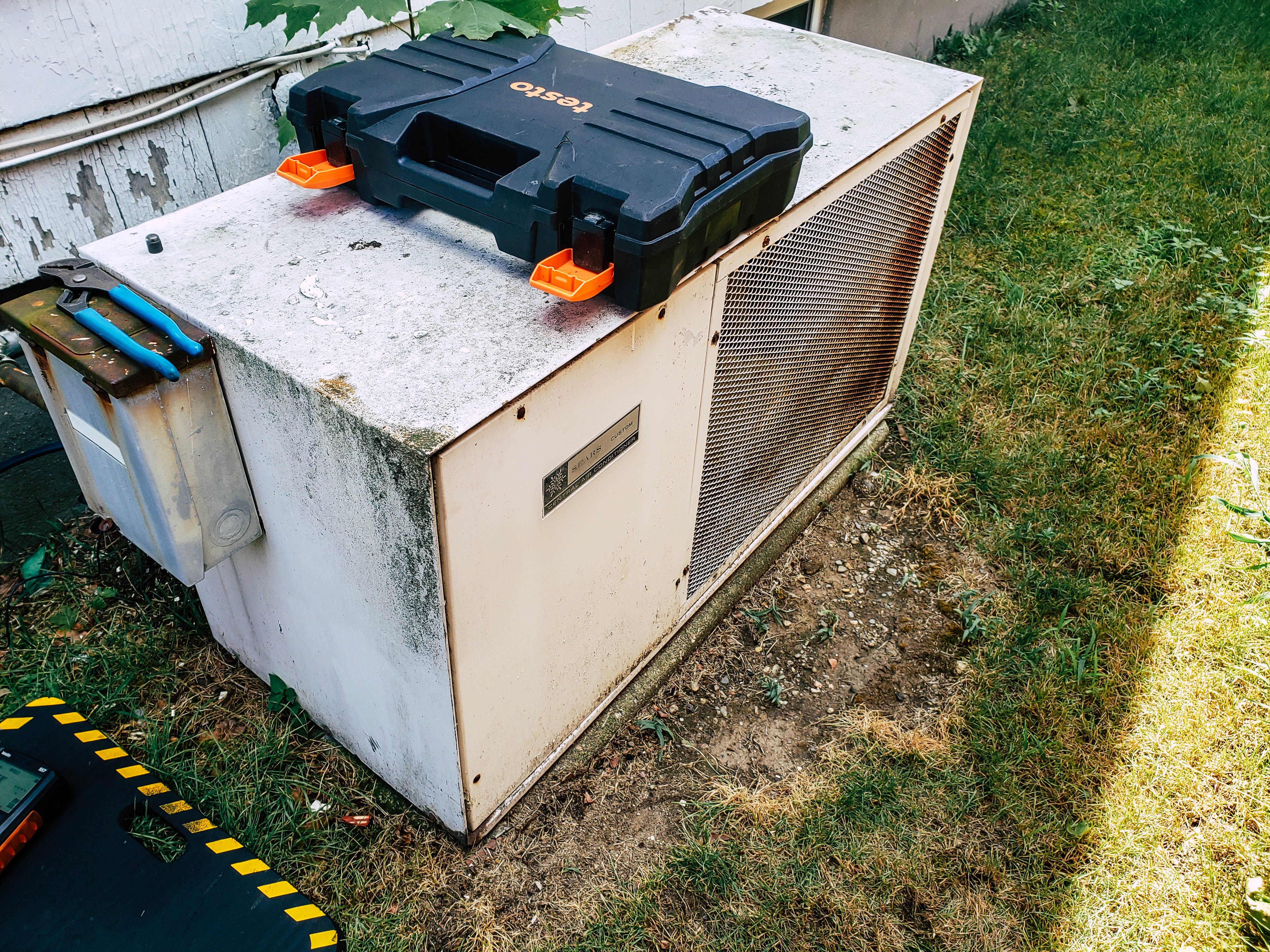Though living in San Diego is a dream, dealing with earthquakes are a nightmare. We all know about how to protect your family during an earthquake, but what about your home? Most resources look at how to protect your belongings, but what about the plumbing system inside your walls and under the house? Learn how an earthquake can damage your plumbing and what you can do to protect it.
How Can an Earthquake Hurt Your Plumbing?
Earthquakes can cause major damage above ground. But what happens beneath our feet? Short answer, a lot of damage.
An earthquake can cause your plumbing pipes to crack or even break. This could have a major impact on your main sewer line, home plumbing system, and even appliances that use water like your sinks, tubs, and washing machines.
There’s another important appliance that can be greatly affected by an earthquake, your water heater. Without proper earthquake straps, you could face the threat of fire, a gas leak, and damaged from a falling water heater.
One of the easiest things you can do to prevent earthquake damage is to make sure your earthquake straps are up to code. This simple task can save you from a lot of earthquake damage.
After an Earthquake: Check for Water Leaks
The best thing you can do for your home and your plumbing is to turn off the main water supply at the first sign of any leaking or flooding water. This alone can save you a huge amount of time, effort, and money in potential water damage.
There are pipes that run throughout the walls of your home. If your home has no visible damage and you feel safe staying inside, here are a few things to look for:
- Search for any wet spots on your walls or floor. This is a sign a pipe is burst or broken.
- Listen for sounds of running or dripping water.
- A sudden change in water pressure can indicate a broken pipe and a subsequent water leak.
After the Quake: Check for Gas Leaks
A gas leak is one of the most serious consequences of an earthquake. The have the potential to be harmful, even deadly, to anyone in your home.
The best way to try and find a gas leak is by smelling for it. Natural gas has no smell, but companies add a strong odor to it, similar to rotten eggs, that can alert you if any gas is leaking in your home.
Another way to look for a gas leak is with your ears. Sometimes a gas leak will sound like a long hiss.
After the Quake: Check Sewer Line for Damage
The sewer line is perhaps one of the most important parts of your plumbing system. It takes all the waste from your home and sends it to a processing facility. A break in the sewer line is not only gross, but it can also be dangerous.
Sewage waste, even just fumes, can lead to major health issues like bacterial infections. The gas can also be incredibly toxic.
The best way to check for any post-earthquake sewer line damage is also with your nose. The distinct odor of waste is almost always a surefire sign there’s a leak or break in the pipe.
Also, look for any collecting water or unusual wet spots in your yard. Standing water could be a sign of a main sewer line leak.
Make Sure to Minimize the Risk
One of the biggest problems with your plumbing system is that you can’t just open the hood and look inside. You need to have the help of professional plumber to even see what’s going on down there.
However, there are some ways you can figure out if there’s a problem that needs to be addressed. They are:
- Check any leaks before they become too big
- Even the smallest leaks can be an indicator of a larger problem. The best way to mitigate risk is to have even small leaks checked by a professional.
- Know where your water shut-off valve is and how to use it.
- In the case of a large quake and any visible leaks or flooding, you will need to turn off your water. Locate your shut-off valve and ask a professional how to use it. This could mean the difference between a small fix and a huge case of water damage.
- Have a plumber out every year or two to clear your drains of any potentially damaging debris.
- Having a plumber inspect your pipes with a camera and clear away any existing clogs or debris is a great way to keep your plumbing system in shape.
Earthquake Safety Tips
While your home is important, you and your family’s safety should come first. Here are the best things you can do to ensure the safety of everyone in your home:
Before the quake:
- Work with your family to put together an earthquake plan. Map out a meeting area and locate any exits in your home. Don’t forget to include your pets in this plan.
- Put together an emergency supply kit with water, food, emergency phone numbers, medical information, and identification.
- Make sure your home, and the contents inside of it, are earthquake safe.
- Download any apps that will give real time updates of happenings in your area.
During the Quake:
- If you are driving, pull the car over, engage the parking brake, and wait out the quake.
- Caught in bed? Cover your head and neck with pillows and turn face down.
- Outside? Stay away from any large buildings. Find an empty spot and wait it out.
- Inside? Stay there. Don’t try to run outside. Avoid doorways and remember to drop, cover, and hold on.
After the Quake:
- First, make sure you are not hurt. Then go check on everyone else in your home.
- Expect at least one aftershock if not more.
- If there is visible damage to your home, get everyone outside as fast as possible.
- Use text messages to check in with others. Texts are more reliable than phone calls.
Keep your pipes in tip-top condition with the experts at ASI, the White Glove Guys! Schedule an appointment today.








